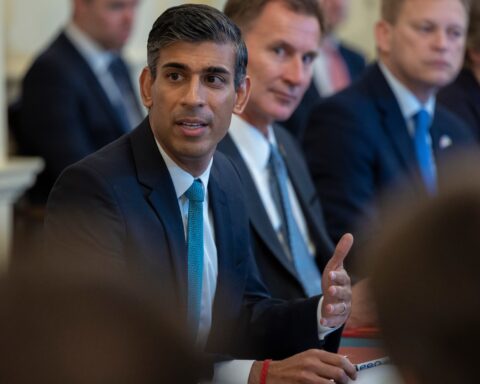Last week, when it became clear that the ‘Leave’ side had narrowly won the referendum in Britain, my Facebook and Twitter feeds began filling up with a graphic that demonstrated just how divided the results were among the generations. Is this a sign of heightened generational tension, or in an era of rapid change, do grandparents and grandkids still have more in common than the Brexit fallout would suggest?
As the world waits to find out exactly what Brexit will mean and how messy the consequences will be, the initial reactions to the vote last week were swift and filled with emotion as those on the losing side looked for ways to making sense of the unexpected result.
We have seen it on this side of the pond before. In Quebec, Jacques Parizeau’s famous ‘money and the ethnic vote’ quote was once again the subject of news headlines last week when the City of Montreal renamed a park in his honour. Even 20 years later, the blame game that took place after the 1995 referendum still leaves emotions raw.
The rate of change is speeding up, and a child today raised with an Ipad in their hands will likely have a significantly different experience than a one born five years from now who comes of age in an era when virtual reality is omnipresent.
In Britain, despite the anti-immigrant rhetoric throughout the campaign, the blame was placed squarely on the shoulders of grandmothers. As the YouGov poll whose graphic went viral outlined, 71 per cent of 18-25 year olds who voted in the referendum voted ‘Remain’, while 60 per cent of voters between the ages of 50 and 64 voted ‘Leave’. A chasm between generations.
But is this a sign that the old and young just don’t understand each other any more? Are our experiences and perspectives just too different in this day and age to be able to find common ground?
Generation expert Jason Dorsey from The Centre for Generational Kinetics argued in his 2015 Tedx talk, that there is some truth to the idea that the gaps between generational experience are widening. Due to the rapid pace of change, Dorsey suggests generations will in short order go from being 20-year spans of identities rooted in common experience to 5-year spans.
The rate of change is speeding up, and a child today raised with an Ipad in their hands will likely have a significantly different experience than a one born five years from now who comes of age in an era when virtual reality is omnipresent.
Dorsey also argues that this new reality will mean that younger generations will begin impacting older generations in a way they haven’t before. ‘Experience’ begins to have a different meaning when the name of the game is rapid change and growing up with an ingrained knowledge of technology is an advantage.
But does that perspective tell the whole story? No, says Paul Taylor of the Pew Research Center in his book The Next America: Boomers, Millennials, and the looming generational showdown. Despite the somewhat misleading title of the book, he argues that “despite their many differences, young and old…aren’t spoiling for a fight….they like each other too much.”
Having grown up in households that involved more democracy than hierarchy when it comes to child and parent relationships, kids these days have more of a say than children did in past generations. And this means that they actually really like their parents and grandparents. Economics may be a driving factor behind why 42 per cent ofCanadians in their 20s still live with mom and dad but Taylor would also argue that the option of staying in the family now is more likely because young people these days like their parents and see no reason to break up a good arrangement.
Taylor argues that any showdown that might be looming is one about economic inequality, not age. “It’s 1 per cent vs. 99 per cent, not young versus old. Occupy Wall Street, not Occupy Leisure World.”
“It’s 1 per cent vs. 99 per cent, not young versus old. Occupy Wall Street, not Occupy Leisure World.”
This dynamic was also playing out with the Brexit vote, where pundits and pollsters outline that educational and wage divides paint a starker picture than age.
No matter what the reality, as the results came in, a picture was painted pitting generations against each other — a narrative that may be damaging and is likely to stick around for a while. As we have seen in Quebec, moments like these can set the tone of a debate for decades to come.
As calmer heads prevail and the emotional rhetoric dies down, it will be important to counter this divisive narrative and instead work to build bridges between those of different generations and those with differing views. And keep to in mind that the only age cohort that truly has the right to be angry about the result are the 16- and 17-year-olds who didn’t get to vote.
Ilona Dougherty is a youth engagement expert and the co-founder of Apathy is Boring. She is a regular commentator in national media, a published author, and speaks to audiences internationally about how we can tap into the innovation potential of Millennials and Gen Z. She was named one of the Top 100 Most Powerful Women in Canada by the Women’s Executive Network in 2015.
Republished under arrangement with ipolitics.ca




